Reasons why older adults may not get enough sleep
The older we get, there is a less chance of a good night’s sleep. It’s true. Many people over 50 do not get enough sleep compared to when they were younger. There are a variety of reasons for this. Older adults that have been diagnosed with a sleeping disorder, such as insomnia, may find it hard to relax and close their eyes to sleep. Sometimes seniors that are sick or ill, may experience sleep deprivation, which can leave a person up for hours. In fact, if you suspect you have sleep deprivation, talk to your doctor as soon as possible; since it can lead to more serious problems like depression, schizophrenia, and chronic pain syndrome.
Other reasons may be because of the medications an elderly person is taking. There are some that is known to cause restlessness and keep a person irritable, which then will keep you from getting a good night’s sleep. Whatever your reason, rest assure that there are ways to get your body calm and relaxed, so you can sleep well.
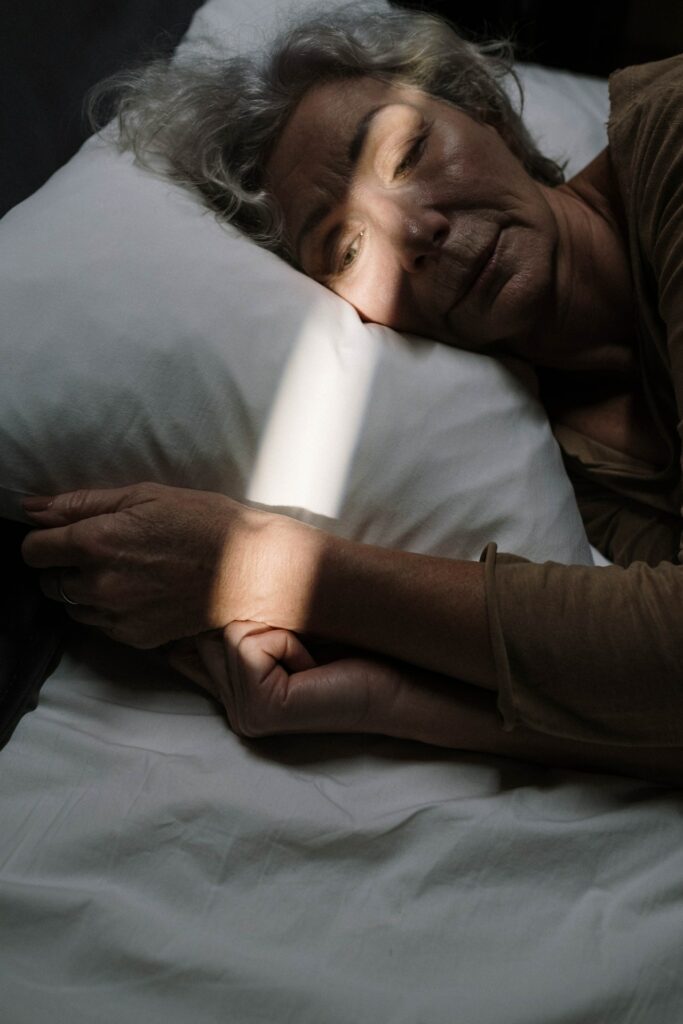
What could happen if I don’t get enough sleep?
Here are a few symptoms that seniors may feel if they do not get enough sleep:
- Become irritable in the morning
- May experience memory problems or forgetfulness
- Feel depressed
- More chances of falls or accidents
- May experience sleeping disorders
How to get better sleep
Getting enough sleep is important for everyone, especially seniors. There are several things that seniors can do to make sure they receive the best sleep they can, and need. Here are just a few ideas to help older adults to do for a good night’s sleep:
- Use low lighting- It is said that when you lower the lights around the house and in the bedroom may help prepare your mind for bedtime.
- Develop a bedtime routine- Taking time to relax before getting into bed can help seniors get a good night’s sleep. This includes reading a book, listening some soft music or taking a bath before bed. You should also go to sleep at the same time, no matter what day it is. Keep this bedtime schedule even on the weekends or when traveling.
- Avoid electronics, such as TVs and Computers- There have been many studies that state watching TV, playing on the computer, or using your phone can easily distract you from getting a good night’s sleep. The best thing to do is put them away or shut them off at least 30 minutes before you are ready to sleep.
- Reduce consumption of Alcohol and Caffeine- A little red wine is nice with dinner, but not before bed. Those that drink alcohol find it hard to fall asleep. This is the same as caffeine. Avoid eating chocolate, coffee, soda, and tea before heading to bed. Unless, of course it is decaf.
- Keep your house temperature comfortable- Have your home comfortable to sleep well. Not too hot, but also not too cold. This can keep you from moving around at night or waking you up.
- Avoid large meals before bed-Studies show that a person’s last meal (dinner/supper) should be the smallest one of the day. Plus, it should be consumed at least one to two hours before going to bed. If you eat right before laying down for the night, you won’t be able to sleep, or at least sleep well.
More on Sleeping disorders
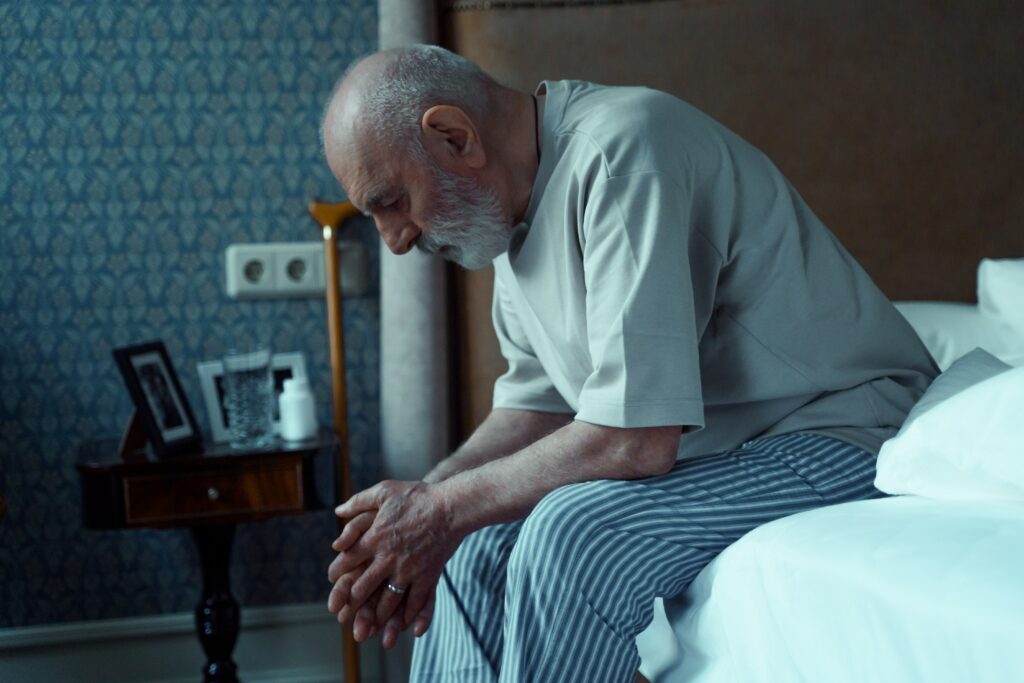
Sleeping disorders are quite common among the elderly. One reason is that most seniors have trouble relaxing their minds as the day goes on, so they may find it difficult to stay rested and calm by the time it’s bedtime. There are several types of sleeping disorders that seniors may develop. Here is a list of the most common types of sleeping disorders that can affect older adults.
Sleep Apnea
Those who have been diagnosed with sleep apnea tend to experience short pauses in between their breathing as they sleep. The pauses can go on throughout the night, and can cause a person to stop breathing at times. If not treated correctly, the sleeping disorder may cause other problems to occur, such as a stroke, memory loss, or even high blood pressure. Some seniors who do have sleep apnea may also have a tendency to snore loudly. Most individuals may not be aware that they even have this sleeping disorder. Common symptoms of sleep apnea are:
- Loud snoring
- Disturbed sleep
- Morning headaches
- Sleepiness or lack of energy during day time
- Waking up with dry mouth or sore throat
- Irritability
- Mood changes
- Loss of libido (loss of interest in sex)
- Insomnia
Talk to your doctor as soon as you notice symptoms of sleep apnea. There are treatments available for sleep apnea. One type is using a continuous positive airway pressure (CPAP) device. Most seniors who use this device find it very useful. Sometimes, surgery can also help seniors cope with sleep apnea.
Insomnia
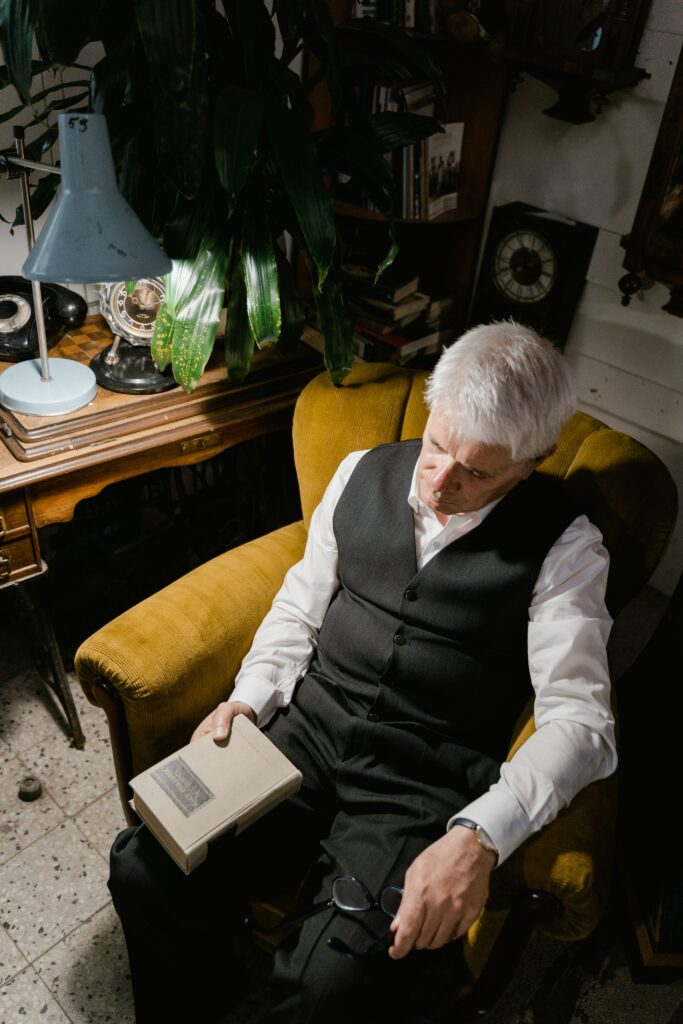
Insomnia is common among older adults, especially those over 60 years of age. Many with this condition have trouble sleeping, staying asleep, or falling asleep; it can last for a number of days, months, or even years. Treatment is available by talking to your family doctor. Sometimes, family history of insomnia may increase the likelihood that you will have it yourself. There are many causes of insomnia. A few common causes are overactive mind; mental health or illnesses, such as depression, bipolar disorder, anxiety, and psychotic disorders; being jet lag from traveling; or environmental noise.
Narcolepsy
Narcolepsy is a neurological condition known to disturb the wake cycles of those affected. Many people with this condition find themselves sleepy throughout the day and can easily fall asleep while doing every day activities. Narcolepsy is a rare condition, with less than 20,000 cases throughout the nation. Most people are between the ages of 18 to 35; however, seniors can also be affected by this condition. Diagnosis is available by getting a lab test by your doctor. Treatments include the following: Polysomnography-measuring signals and electrical activity of the brain during sleep using electrodes; Multiple sleep latency test- measuring a person’s tendency to fall asleep and activity of isolated elements of REM sleep; and the Epworth sleepiness scale- questions given to the patient to determine the degree of sleepiness. There is currently no cure for narcolepsy.
The Connection between Sleep and Movement Disorders
There are several types of sleep movement disorders that can affect the way people sleep or lack there of. These sleep movements are known to disturb your sleep schedule or sleep pattern, making it difficult for people to stay asleep at night or cause daylight sleepiness when awake. Common movement disorders include Parkinson disease, dystonia, myoclonus, Huntington disease, rapid eye movement syndrome, and ataxias. Treatment for each one will vary. Below are some examples of what these movement disorders can do to your sleep. Each one is common among seniors or older adults with sleeping problems.
Restless legs syndrome: also known as RLS, can cause tingling, crawling, or pins and needles in one or both legs. The feeling is often worse during the night than the day.
Periodic limb movement disorder: PLMD, can cause jerking or kicking with their legs, some do this every 20 to 40 seconds while sleeping. There is medication for it. You can also take warm baths, exercise, and relaxation exercises to help.
Rapid eye movement: aka, REM. This is a sleep behavioral disorder. Normally, when a person is in REM sleep, their body and muscles don’t move; so they can stay fast asleep. However, if you have a disturbance in your REM sleep, your muscles may move involuntary and can keep you up at night, disturbing your sleep pattern.
The Link between Alzheimer’s Disease and Sleep
People who have been diagnosed with Alzheimer’s disease can also have trouble with sleep. They can often sleep too much, or, in some cases, do not get enough sleep. Many Alzheimer’s patients can be found wondering around the house at night or yelling for someone or something. In many cases, the person with Alzheimers is not the only one not getting enough sleep. Caregivers that live with the person can also lose sleep, due to many sleepless nights and worrying about the Alzheimer’s person. For those who are Alzheimer’s caregivers, here are a few tips to help keep them safe while giving you a better good night’s sleep:
- Attach grab bars in the bathroom.
- Make sure the floor is clear of objects.
- Place a gate across the stairs.
- Lock up any medicines.
Quick Tips to Help You Fall Asleep
There are many ways to get your body and mind rested enough for you to fall asleep. The old adage of counting sheep doesn’t necessity work for all people, so here are a few tips that seems to work better, especially for seniors who find it hard to relax and fall fast asleep.
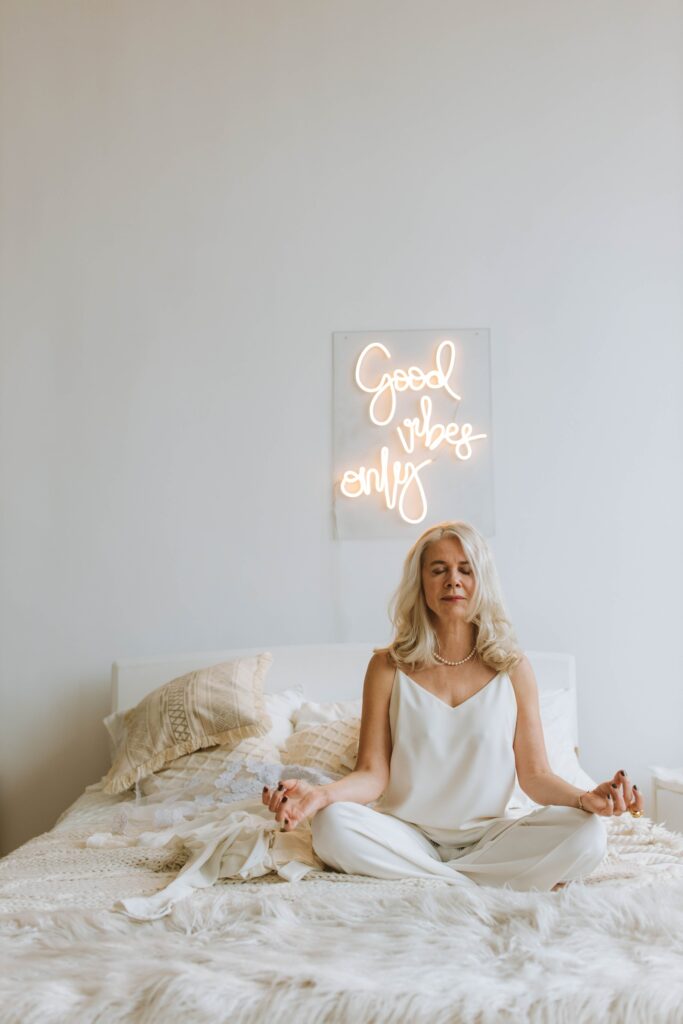
- Counting down slowly: Instead of sheep, just think of numbers itself. Some believe counting slowly can help calm your mind and make you sleepy at the same time. Whether you are counting up or down, it doesn’t matter. It can still work the same.
- Use your bedroom only for sleep: when you feel sleepy, go to the bedroom, close he door, shut off the lights, and get in bed. You should give yourself about 20 minutes to fall asleep. If you are still awake, go to another room til you feel sleepy again.
- Meditate before bedtime: sometimes, seniors find that if they relax their body and mind through meditation, they can fall to sleep much easier. Try it about 30 minutes before going to bed.
- Play a mind game: Some people that play an activity where they need to concentrate, may feel tired or sleepy after a while. For example, playing a game of chess or trying to complete a jigsaw puzzle can make a person so relaxed, they can get tired and fall asleep.
- Trying relaxation techniques: Some seniors that have a hard time sleeping may need to try some relaxation techniques to calm their bodies. The best way to do this is by starting from your toes, then slowly moving up the body, til your whole body is completely relaxed. Concentrate on relaxing your toes, then the feet, ankles, knees, and so on. Most people will fall fast asleep before they even get to their head.
For those who still feel tired, yet unable to get a good night’s sleep for more than two to three weeks, you may have a sleeping disorder. Talk to your doctor as soon as possible if this persists.
Safety tips for older adults when preparing to sleep
Here is a short check list of to do’s when you are getting ready to lay down for the night. These can not only help you sleep better, but can also keep you safe while you sleep.
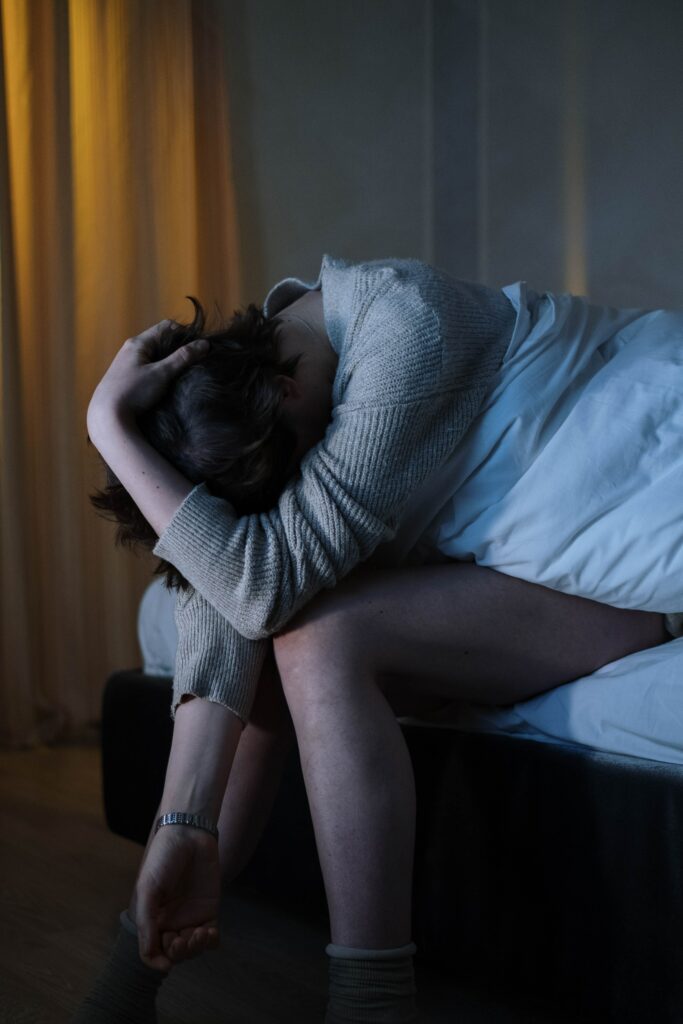
- Make sure all windows and doors that lead outdoors are locked before going to bed.
- Find a safe place to sleep and get rested for the night.
- Make sure smoke alarms are working correctly and are on each floor of the house.
- Keep your phone with emergency numbers by the side of your bed.
- Have a lamp that is easy to turn on within your reach.
- Put a glass of water next to the bed, just in case you wake up thirsty.
- Remove area rugs so you won’t trip if you get out of bed during the night.
- Do not smoke, especially in bed.
Still having trouble Sleeping?
Some older adults who struggle with falling asleep try over-the-counter sleeping aids, others use prescribed medication from a doctor, while others may use natural remedies to help with sleeping. Whichever method you choose, know that medicines are meant for temporary use and are not necessary a cure. If being unable to sleep continues, talk to your doctor about the best treatment or method for your own health and wellness when it comes to sleep.